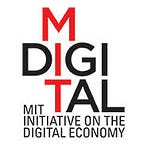Experience Platforms Pivot So the Show Can Go On (Online)
How can platforms that depend on live experiences stay viable during the pandemic?
By Paula Klein
Just as a new niche for platform marketplaces was gaining speed, it came to a screeching halt.
Platforms are spreading beyond products and services into new subcategories where they match meeting places with business people, music events with audiences, and brands with marketing opportunities — all based on hyper-personalized experiences. Joe Pine, a consultant and author of The Experience Economy, noted that “consumers, and increasingly, business people, want experiences and events that engage each person in a personal way.”
“Commodities and goods have always been sold on platforms,” Pine said during a panel discussion at the recent MIT Platform Strategy Summit. Service platforms, such as Uber, proliferated next, followed by what he calls experience platforms. Originally, Airbnb was a service platform selling a couch or a spare room, according to Pine, but then it began teaching hosts about hospitality and how to create great experiences.
Since COVID-19, however, Airbnb, like others in the market, have scrambled to add online experience functions to resuscitate the business.
Andrew Beranbom, founder and CEO of First Tube Media, a branded, live-streaming performance platform, a veteran digital marketing executive, described streaming, especially music, “as a new frontier for branded marketing.” His firm helps brands realize ROI and offers a combination of management services and hosting technology. The emphasis is on experiences that will draw “attention for our brands in an authentic, scalable way,” he said.
Since the pandemic Beranbom had to pivot his business.
“We had a proven model to use live media for business results,” but as everything moved online, new models were needed quickly to keep revenue flowing and keep audiences engaged.
For a Global Giving Tuesday event planned for May 5, First Tube Media put together a five hour combination of celebrities and music talent completely via live stream through the cloud, Beranbom said.
Similarly, Laura Simpson, CEO and co-founder of Side Door, which matches artists with venues to create shows of Side Door is adapting to new business models. She started her platform as a marketplace that booked performance venues, provided ticketing, and convened live audiences, but suddenly had to switch to online streaming concerts on March 21. “We have completed nearly 200 shows since then and we collaborate, vet vendors, and pull together the people necessary to make a great online show.”
Even before the pandemic, Ronald van den Hoff, co-owner of Seats2meet.com, migrated his platform from an online reservation system to a full-service platform, including networking for business events. “We realized we could use the data we gathered and the expertise of co-workers to enhance the experience of guests coming to the meeting rooms.”
The platform uses artificial intelligence to match people who may chat, find jobs, or share innovative ideas online or in person.
The three experience platform leaders spoke with Pine about their strategies and models at the July 8 Summit. Simpson is finding new ways to create value around online and interactive experiences such as artist interviews and building online communities using recommendation engines and personalization. Similarly, van den Hoff said that virtual meeting spaces will be available even as physical locations reopen, creating a hybrid business with physical and virtual components.
For Beranbom, the shift may be permanent. “I’d say 90% of CMOs understand, or are at least interested in understanding how digital live experiences can work for their brand,” he said.
All of the executives hope to leverage the new services to attract more customers and to stay flexible in ever-changing times.
